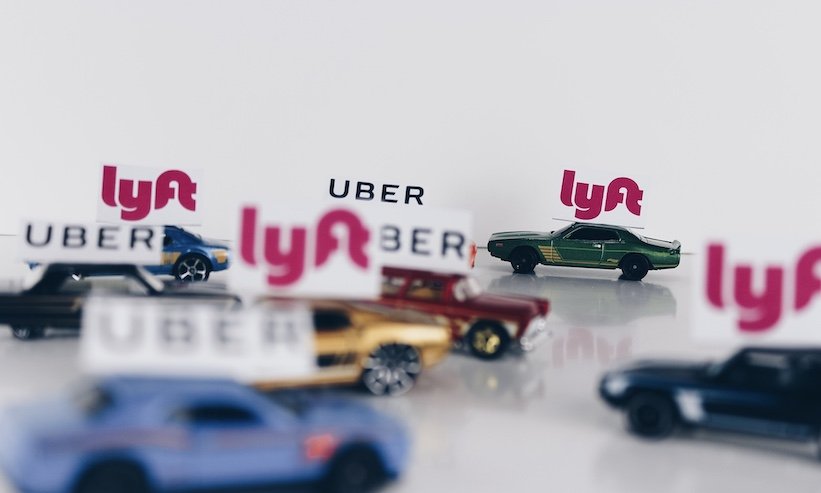Exploring the world of insurance tips for delivery and ride-share drivers, this introduction sets the stage for an informative journey. From understanding the importance of insurance coverage to choosing the right policy and handling claims, this guide covers all the essentials in a clear and engaging manner.
Importance of Insurance for Delivery and Ride-Share Drivers
Insurance coverage is crucial for delivery and ride-share drivers as it provides protection in case of accidents or incidents on the road. Without proper insurance, drivers may face significant financial risks and legal consequences that could impact their livelihood.
Protection in Case of Accidents
Insurance ensures that drivers are covered financially in the event of accidents, whether they are at fault or not. This coverage can help pay for damages to their vehicle, medical expenses, and legal fees that may arise from the accident.
Legal Compliance
Having insurance is not only important for protection but also a legal requirement in most places for delivery and ride-share drivers. Driving without proper insurance can result in fines, license suspension, or even being held personally liable for damages in case of an accident.
Peace of Mind
Insurance provides drivers with peace of mind knowing that they are financially protected in case of unforeseen circumstances on the road. This sense of security allows drivers to focus on their work without worrying about the potential financial burdens of accidents or incidents.
Types of Insurance Coverage

When it comes to insurance coverage for delivery and ride-share drivers, it's important to understand the different types available to ensure you are adequately protected in various situations.
Liability Coverage
Liability coverage is essential for all drivers, as it helps cover costs associated with injuries or property damage to others in an accident where you are at fault. This type of coverage is required by law in most states and is crucial for protecting your assets in case of a lawsuit.
Comprehensive Coverage
Comprehensive coverage helps pay for damages to your vehicle that are not caused by a collision, such as theft, vandalism, or natural disasters. This coverage is beneficial for ride-share drivers who may park their vehicles in different locations or work in areas with higher crime rates.
Collision Coverage
Collision coverage helps pay for damages to your vehicle in the event of a collision with another vehicle or object. This coverage is important for delivery drivers who are constantly on the road and at a higher risk of being involved in an accident.
Uninsured Motorist Coverage
Uninsured motorist coverage protects you if you are involved in an accident with a driver who does not have insurance or is underinsured. This coverage can help cover medical expenses and damages to your vehicle in situations where the at-fault driver cannot pay.
Tips for Choosing the Right Insurance Policy

When it comes to selecting an insurance policy as a delivery or ride-share driver, there are several important factors to consider. Adequate coverage limits and deductibles play a crucial role in ensuring you are protected in case of any unforeseen incidents.
Customizing your policy to suit your specific needs can also provide you with peace of mind while on the road.
Factors to Consider When Selecting an Insurance Policy
- Consider the type of driving you do: Whether you focus on deliveries, ride-sharing, or a combination of both, make sure your policy covers all aspects of your driving activities.
- Evaluate coverage limits: Ensure that your policy provides sufficient coverage limits to protect you in case of accidents, injuries, or damages.
- Review deductibles: Choose deductibles that you can afford to pay out of pocket in the event of a claim. Higher deductibles often result in lower premiums.
- Check for add-on options: Explore additional coverage options such as roadside assistance, rental car reimbursement, or gap insurance to enhance your protection.
Importance of Adequate Coverage Limits and Deductibles
- Having adequate coverage limits ensures that you are financially protected in case of costly accidents or lawsuits.
- Choosing the right deductibles can help you balance your premium costs with out-of-pocket expenses in the event of a claim.
- Underinsuring yourself by opting for low coverage limits or high deductibles can leave you vulnerable to financial risks.
Customizing Your Policy to Suit Your Needs
- Speak with your insurance agent: Discuss your driving habits, vehicle usage, and specific insurance needs to tailor a policy that fits you best.
- Consider usage-based insurance: Opt for telematics devices or mobile apps that track your driving behavior and offer personalized insurance rates based on your driving habits.
- Regularly review and update your policy: As your driving habits or needs change, make sure to update your policy to reflect any adjustments required for adequate coverage.
Cost-Saving Strategies for Insurance
When it comes to insurance for delivery and ride-share drivers, finding ways to save money on premiums can make a big difference. Here are some cost-saving strategies to consider:
Bundling Policies for Discounts
One effective way to save on insurance premiums is by bundling your policies. This means purchasing multiple insurance policies from the same provider, such as combining your auto insurance with your renter's insurance. Many insurance companies offer discounts for bundling, which can lead to significant savings.
Maintaining a Clean Driving Record
Another important factor that can help lower your insurance premiums is maintaining a clean driving record. Avoiding accidents and traffic violations demonstrates to insurance companies that you are a responsible driver, which can result in lower rates. Some insurance providers offer safe driver discounts for those with a clean record.
Usage-Based Insurance for Personalized Rates
Usage-based insurance is a growing trend that allows drivers to pay for insurance based on their actual driving habits. By installing a telematics device in your vehicle, insurance companies can track your driving behavior, such as speed, mileage, and braking patterns.
Drivers who exhibit safe driving practices can qualify for lower premiums with usage-based insurance.
Handling Insurance Claims
When it comes to handling insurance claims as a delivery or ride-share driver, it is crucial to follow the correct steps to ensure a smooth process. From documenting incidents accurately to effectively communicating with insurance companies, there are important factors to consider throughout the claims process.
Steps to Take When Filing an Insurance Claim
- Immediately report the incident to your insurance company or the company's claims department.
- Provide detailed information about the incident, including date, time, location, and any other relevant details.
- Document any damages or injuries with photos or videos to support your claim.
- Cooperate with the insurance company's investigation and provide any additional information or documentation requested.
Tips on Documenting Incidents and Communicating with Insurance Companies
- Keep a log of all relevant information related to the incident, including witness statements and police reports.
- Communicate clearly and professionally with your insurance company, providing all necessary documentation in a timely manner.
- Follow up regularly with the insurance company to stay informed about the progress of your claim.
Common Challenges and How to Navigate Them Effectively
- Delays in claim processing: Stay in touch with your insurance company and follow up regularly to expedite the process.
- Disputes over coverage: Review your insurance policy carefully and seek clarification from your insurance company if needed.
- Low settlement offers: Provide additional evidence to support your claim and negotiate with the insurance company for a fair settlement.
Final Thoughts

In conclusion, navigating the realm of insurance as a delivery or ride-share driver can be complex, but with the right knowledge and tips, drivers can protect themselves and their vehicles effectively. Remember to always prioritize safety and adherence to insurance regulations to ensure a smooth driving experience.
FAQ Guide
What are the consequences of driving without proper insurance?
Driving without proper insurance can lead to legal penalties, financial liabilities in case of accidents, and potential loss of income from not being able to drive legally.
How can drivers save money on insurance premiums?
Drivers can save money by bundling policies, maintaining a clean driving record, opting for usage-based insurance, and taking advantage of available discounts.
What steps should drivers take when filing an insurance claim?
Drivers should immediately report the incident, document all relevant information, communicate effectively with the insurance company, and follow through with any additional requirements promptly.













